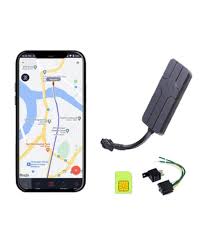A GPS tracking car system is designed to monitor and manage vehicles in real-time using Global Positioning System technology. Here’s an overview of its key components, features, benefits, and applications:
Key Components
- GPS Receiver: Installed in the vehicle to receive signals from satellites and determine its location.
- Tracking Device: A hardware unit that processes GPS data and sends it to a server, often via cellular networks.
- Software Platform: An application or web interface where users can view and manage vehicle data, including location, speed, and routes.
- Mobile App: Allows users to access tracking information on smartphones for convenience.
Features
- Real-Time Tracking: Monitor vehicle location in real-time on a map.
- Geofencing: Set virtual boundaries and receive alerts when the vehicle enters or exits designated areas.
- Route History: Review past routes taken by the vehicle for analysis and record-keeping.
- Speed Monitoring: Track vehicle speed and receive alerts for speeding incidents.
- Trip Logs: Generate reports on trips, including start and end times, distances traveled, and stops made.
- Emergency Alerts: Send alerts in case of accidents or unauthorized movements.
Benefits
- Enhanced Security: Helps recover stolen vehicles and provides real-time alerts for unauthorized use.
- Improved Fleet Management: Businesses can optimize routes, reduce fuel consumption, and monitor driver behavior.
- Cost Savings: Reduces operational costs through efficient route planning and decreased fuel expenses.
- Increased Safety: Monitors driver performance, encourages safe driving habits, and reduces accident rates.
- Peace of Mind: Provides vehicle owners with reassurance knowing they can track their vehicles anytime.
Applications
- Personal Use: For individuals wanting to keep tabs on their vehicles or ensure the safety of loved ones.
- Fleet Management: Used by companies with delivery services, logistics, or transportation to monitor and manage their fleet.
- Insurance Companies: To offer usage-based insurance discounts based on driving behavior data collected via GPS.
- Public Transport: Used by transit systems to provide real-time updates to passengers about bus and train locations.
Conclusion
A GPS tracking car system is a powerful tool for both personal and commercial vehicle management. It offers real-time insights that enhance security, optimize operations, and provide peace of mind. Read more...GPS Trackers for Cars




Comments
Post a Comment